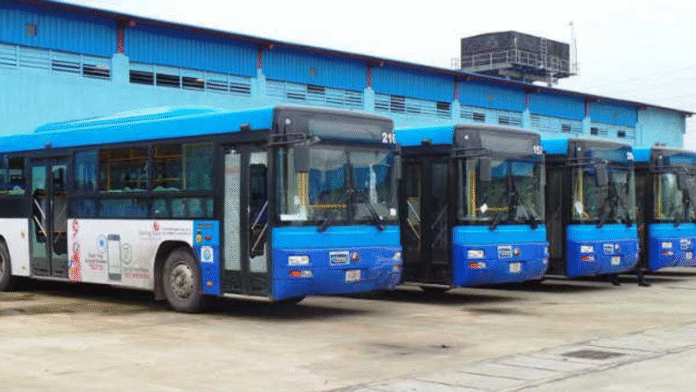Lagos State Governor Babajide Sanwo-Olu has significantly subsidized bus fares for residents, contributing a total of ₦14.9 billion since 2019. The subsidy is part of an ongoing effort to support public transportation and provide affordable, reliable travel options for Lagosians. This was revealed by the State’s Commissioner for Transportation, Oluwaseun Osiyemi, at the 2025 Ministerial Press Briefing in Ikeja.
The Lagos State Bus Service Limited (LBSL), established to offer modern, safe, and efficient public transport, has made a notable impact on local travel. Since its launch, LBSL has transported more than 60 million passengers, with an average of 42,266 passengers daily. The service operates about 1,000 bus trips each day, offering affordable fares compared to informal public transport options. As of February 2025, the average LBSL fare was ₦542.66, compared to ₦1,097.73 on informal alternatives, creating a subsidy of ₦261.67 per trip.
The Marina-Mile 2 section of the Blue Line Electric Light Rail has also made significant progress, reaching over 2 million passengers since it became operational. This rail line, part of a larger plan to revolutionize transportation in Lagos, will ultimately stretch 27 kilometers, with Phase 2 construction set to extend from Mile 2 to Okokomaiko.
Governor Sanwo-Olu’s administration is also advancing other key rail projects. The Red Line, which covers a 37-kilometer route from Marina to Agbado, has already seen its first phase operational, and work on Phase 2 continues. Moreover, the state is planning to expand further with the Green Line Metro Project, a 68-kilometer rail line running from Marina to the Lekki Free Zone, with construction expected to begin later in 2025.
These projects are part of a broader vision for a world-class, multimodal transportation system in Lagos, aiming to meet the needs of its rapidly growing population. The Green and Purple Line projects, in particular, promise to ease congestion and improve connectivity across the city.

